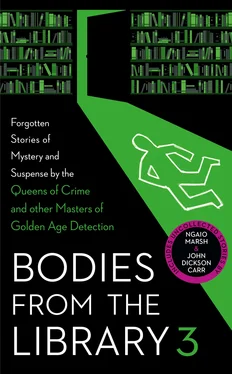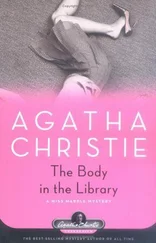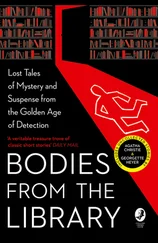‘Two months.’ The stranger’s voice floated over the abyss, clear as water. ‘She will take an overdose before the two months are up. We can ensure that much for you, you know.’
The car sped through street after street, where swarms of men and women swam past like sea-creatures in a tank. At every bump it rose like a ship, riding huge combers. They were moving fast, they were racing at the speed of light. One hundred and eighty-six thousand miles a second. He could watch time spinning backwards, like a cinematograph film reeled out the wrong way. Yet nothing was blurred in their headlong flight. Lamp-post succeeded lamp-post, each one rigid as a soldier on parade, each one with its own mysterious character and importance. His companion was seated beside him, his face averted. He loomed gigantic, his shoulders had the exuberant mass of a sleeping elephant. Belford could hear the billowing outline of his back, like a symphony. It rolled out in striding harmonies. A persistent and birdlike trilling puzzled Belford for a moment, till he traced it to an artificial flower in a silver holder beside him. He felt feverish.
‘It’s rather hot, isn’t it?’ he said.
The stranger put down the window immediately. The air, rushing in, was cool and invigorating, like river water at dawn. Belford was filled with an utter peace and confidence. He had never before seen the beauty of the world so clearly. The smooth leather of the car’s upholstery was a caress to his fingertips. He felt it slowly, luxuriously. It dipped to a hollow, held down by a round button. The exquisite significance of that button penetrated him with an inward ecstasy. He could feel the sense-processes and the thought-processes working swiftly and surely within him. The nerves sent up their urgent message, tingling along his arm. He felt the instant flurry of eager interpretation quickening the cells of his brain, threads of grey matter crossing and inter-crossing. This was what God felt—this endless awareness, stretching to the outer rim of universal consciousness. If a sparrow fell to the ground, he could feel it. He was sensitive to the movements of a microbe or a star. What absurdity to speak of small or great, as though greatness or smallness had any existence! He knew now that what the saints and sages had said was true—but none of them had ever known it as he knew it.
It was funny. It was absurd. Millions of men arguing and disputing—when he could tell them the whole truth of his own, intimate knowledge. But then, everything was funny. Everything had its absurdity, just as it had its beauty and its horror; there were no horrible or beautiful or absurd things; each one was horrible and beautiful and absurd at once, and quite separately. He must tell people about this. The telephone speaking-tube, curled over its iron bracket—it was ridiculous; it was the quintessence of absurdity. Gusts of laughter rolled up and suffocated him as he contemplated that preposterous speaking-tube. He pointed it out to his companion. Its curve as it hung there was a triumph of the incongruous. He shouted and whooped with laughter. One guffaw came breaking over the other like waves on a rocky shore. ‘The laughter of the gods.’ Stray phrases of Greek, forgotten since his school days, came back to him shining, clear-cut and luminous as jewels.
Exhausted with his own exuberance, he lay back in his corner. Every time the wheels turned, the cycle of existence turned through a thousand years. He was God, and he was unutterably lonely. And he was afraid. The stranger had turned and looked at him, and in that look he had seen unspeakable menace. Framed in the dark window of the car he now saw the river. He saw not merely its surface streaked with silver and hung over by brooding trees. He saw beneath the water where the bodies of the dead swam darkly, watched by the flat, round eyes of hungry pike. Small fish, too, devouring one another, struggling for life between the rank stems of the water-weeds, pursuing the dim unlovely things that grew fat upon contamination and sewage. The moon was coming up over a long bank of cloud. The cloud was steeped in silver behind, and he saw through and over it, but on the hither side it was black. Terror held him in chains of iron, so that he could not cry out.
The river had gone, and the moon. The car had stopped. He climbed out of it and stood before a high stone wall, extending right and left for ever. The chauffeur was unlocking the gates. They were enormous. They soared away above his head, so that his neck ached when he tried to see the tops of them. They were green in the headlights. Written across them in bold white letters were the words:
SMITH & SMITH
and underneath, in a smaller script:
REMOVALS
His companion took him by the arm and led him forward. They moved very slowly; each step lasted a week and stretched for a mile. On either side of him, tall poplar trees stood in a whispering avenue. How they talked, leaf chattering to leaf in a continual sibilant chorus! The wind shook them and a leaf fell, slowly, turning and twisting and floating in a dance of inexpressible grace and loveliness. Tears came into his eyes to think that so much wonder could exist. It was heart-rending, and it was beautiful. And all in a moment he was a small boy walking with his nurse along the Cherwell Banks in the grounds of Magdalen College, smelling the sweet, astringent smell of the poplar leaves. The scent rose from the wet earth all about him. His soul ached at it. Then, miles away, glimmering out at the end of the avenue he saw the house of the poplars and knew that he had reached the ultimate significance of all his past and future. Here, since first he stirred in his mother’s womb, the house had stood and waited for him.
He passed over the threshold.
Three men sat about a table. One of them was tall and thin, with sparse red hair and a straggling sandy beard. He sniggered when he spoke.
‘This is Dr Schmidt,’ said Belford’s companion.
‘Delighted,’ said Dr Schmidt. ‘It is very good of my friend Mr Smith to have brought you.’ He sniggered. ‘On my right is Mr Smyth. He spells it with a Y.’
Mr Smyth smiled. He had a narrow, dark face marked with a long white scar as though it had been splashed with acid.
‘It is a pleasure,’ said he, ‘to welcome a new client. Mr Smythe will agree with me, I am sure. He spells his name with a Y and an E.’
The fourth man grunted. He was square and sallow, and his strong hands had short fingers and hairy knuckles.
‘Mr Belford requires a little assistance,’ said Mr Smith. ‘He is troubled with a wife. A wife can be so unnecessary. It is obviously a case for removal.’
‘We undertake removals,’ said Dr Schmidt.
‘They are a speciality of the house,’ said Mr Smyth.
‘Perfect discretion, and distance no object,’ muttered Mr Smythe.
‘What are the lady’s habits?’ enquired Dr Schmidt. He sniggered again. ‘How often do I not warn people that it is unwise to contract habits, but they do not listen.’
‘The lady’s habits come into your department, I fancy, doctor,’ said Mr Smith.
Belford listened as though from a great distance to the details of his own story. The bottle of tablets was in the hands of Mr Smith. Probably he had kept them ever since Belford had handed them to him that evening, centuries ago, in Rapallo’s. But this was a trifle, after all. His attention wandered to the little tune that was being tapped out by the pattern of the tablecloth. It had a note like a xylophone, very bell-like and delicate, and it rippled out a tinny pastoral melody full of the scent of cowslips and newly-budded hawthorn.
Dr Schmidt was speaking.
‘Ten-grain doses. Fifty tablets and fifty nights. And two months to go. That is easy.’
Mr Smith turned to Belford.
Читать дальше











